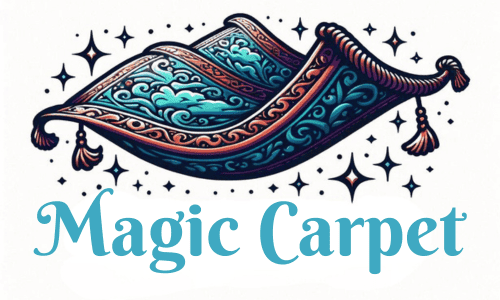Dream interpretation can be a fascinating and insightful process. It allows you to tap into the often-mystifying world of your subconscious mind.
Each night, while you sleep, your brain goes on a storytelling spree. It weaves narratives that can be both bizarre and loaded with symbolism. These dream stories aren’t just random; many believe they’re filled with meaningful insights and hidden messages about your inner feelings, fears, desires, and even solutions to your problems.
By learning the basics of dream interpretation, you can begin to unravel these messages and better understand yourself and your path in life.

To begin interpreting your dreams, it’s helpful to know that dreams can be much more than mere stories played out in your sleep—they often represent a conversation with the deeper layers of your psyche.
While some dreams stand out and demand attention, others might appear trivial or confusing. Regardless of their initial impact, developing a habit of recalling and recording your dreams is a critical first step.
Over time, patterns might emerge, shedding light on recurring themes or symbols unique to you. Becoming familiar with these patterns can be the key to unlocking the language of your dreams and what they may be trying to tell you.
Key Takeaways
- Dream interpretation provides a window into your subconscious mind.
- Familiarizing yourself with common dream symbols can aid in personal insight.
- Regular dream journaling is a practical step toward understanding your dreams
Understanding the Basics of Dream Interpretation
Dream interpretation seeks to uncover the meaning behind your dreams’ subconscious symbols and narrative. Grasping this can provide insight into your emotional and psychological state.
The Psychology Behind Dreams
Your dreams reflect your inner psyche, serving as a window to your subconscious mind.
Sigmund Freud believed dreams were the road to understanding unconscious desires, while Carl Jung saw them as crucial to personal development, introducing the concept of archetypes.
Dreams can reveal the different facets of your personality, such as the anima or the shadow self. They are an integral part of psychoanalysis and aid in exploring your psychological health.
Common Symbols and Their Meanings
| Symbol | Meaning |
|---|---|
| Being Chased | Avoidance of a problem or a fear. |
| Water | Emotions, unconscious mind states. |
| Falling | Lack of control, anxiety about failure. |
| Flying | Desire for freedom, escape from reality. |
While symbols in dreams often have common interpretations, understanding dreams requires considering one’s personal context and emotions. Various symbols can signify unique things to different individuals, so consider how they relate to one’s life experiences.
The Role of the Subconscious
Your subconscious mind is active while you sleep, processing your daily experiences and deepest thoughts.
Dream interpretation allows you to tap into this rich repository of your inner world. By paying attention to your dreams, you can uncover psychological theories that apply to you and possible messages your mind is attempting to convey. Thus, dreams can be used as a guide to personal understanding and growth.
Practical Steps to Interpreting Your Dreams

Interpreting your dreams can seem like a complex task, but with a structured approach, you can start uncovering the hidden messages of your subconscious mind.
These practical steps provide a framework for understanding and deriving personal significance from your dreams.
Keeping a Dream Journal
Start by creating a dream journal. This is a dedicated record of your dreams that you can refer to during your dream analysis.
Each morning, take a moment to write down what you remember from your dreams. It’s important to be as detailed as possible, noting your emotions, environments, and any symbols that stand out.
Consider the following table for organizing your dream journal entries:
| Date | Dream Summary | Notable Symbols | Emotions Felt |
|---|---|---|---|
| YYYY-MM-DD | Brief description of the dream | Objects, characters, etc. | Happy, scared, etc. |
Recording your dreams promptly upon waking is crucial as dreams are often quickly forgotten.
The Clever Fox Dream Journal helps you tap into your subconscious by recording and analyzing dreams, fostering creativity, self-awareness, problem-solving, and stress reduction.
This unique diary offers 60 dream entries, an eco-leather hardcover, quality paper, and extras like stickers. It is designed for all ages and comes with a 60-day money-back guarantee.
Analyzing Dream Content
Once your dreams are recorded, you can move on to dream analysis.
Look for patterns, repeated elements, or common themes. Are you often in a chase, losing something important, or facing an obstacle? These recurrences can be clues to what your subconscious is telling you.
Research commonly agreed-upon symbolisms but always weigh them against your feelings and the unique scenarios of your dreams.
Personal Associations and Context
Your personal associations and the context of your dream play a significant role in their interpretation.
Consider how you relate to the people, objects, or situations in your dream. For instance, if you dream about a specific location, how do you feel about it in your waking life? Does it hold a special meaning for you?
These personal connections will often guide you to a more accurate interpretation of your dreams. Remember, it’s the personal nuances that often decode a dream’s significance.
Common Dream Themes and What They May Signify

Exploring common dream themes can provide insights into your emotions and the subconscious mind. These themes often reflect your anxieties, fears, and aspirations.
Dreams of Falling and Flying
Dreaming of falling may symbolize fears of losing control or failing at something in your waking life. It could also indicate feelings of insecurity or support loss.
On the other hand, dreams where you’re flying often represent a desire for freedom and release from pressure. Flying can also reflect a sense of empowerment and rising above your circumstances.
Teeth Falling Out and Being Chased
Dreaming of your teeth falling out might represent anxiety about your appearance or communication. Sometimes, it hints at fear of powerlessness or loss in personal or professional realms.
Quite often, being chased in dreams can be interpreted as a sign that you’re avoiding a challenging situation or trying to escape a source of fear in your life. If faced, this could be linked to personal growth.
Nudity and Public Exposure
Dreams of nudity or being exposed in public might point to feelings of vulnerability or fear of being judged for who you truly are. They can also indicate a situation where you feel exposed or caught off guard in your waking life.
These dreams might encourage you to consider what unknown aspects of yourself you might be afraid to reveal or confront.
Advanced Dream Analysis Techniques

Moving beyond the basics of dream interpretation, advanced techniques involve a deeper dive into your dreams’ unique symbols and patterns.
These methods can unlock profound insights for personal growth and provide guidance that resonates with your subconscious.
The Use of Dream Archetypes
Dream archetypes are universal symbols that have similar meanings across cultures and individuals. Developed by Carl Jung, they often represent fundamental human motifs or experiences.
You might encounter archetypes such as the Hero, representing your quest or journey, or the Shadow, symbolizing repressed thoughts.
Understanding these can reveal the latent content of your dreams, which is the hidden psychological meaning beyond the manifest content—the actual events you recall upon waking.
Recurring Dreams and Nightmares
Recurring dreams and nightmares may reflect ongoing concerns or fears in your life and signal unresolved issues that require your attention.
Nightmares, in particular, are often more memorable due to their emotional intensity.
When analyzing these dreams, consider the emotions and symbols that are recurring.
For instance, psychologist Calvin S. Hall noted that the content of dreams could reflect aspects of your waking life.
Research by dream analyst William Domhoff suggests that recurring patterns in dreams are highly personalized. As such, your personal growth could be linked with understanding the themes and resolving the conflicts presented in your recurring dreams and nightmares.
Paying attention to these dreams can provide vital guidance toward overcoming personal challenges.
Applying Dream Interpretation to Personal Growth
Interpreting your dreams can reveal insights into your subconscious, aiding in personal development. By unpacking the symbolism in your dreams, you can address underlying fears and anxieties and use these revelations to foster your personal growth.
From Symbols to Real-Life Insights
In your dreams, symbols act as messengers from your subconscious, providing clues into your inner world.
For instance, a dream about being chased may not just be a random scenario; it could symbolize avoidance behavior in real life.
To effectively interpret your dreams, consider maintaining a dream journal. Write down your dreams as soon as you wake up to capture the most accurate details.
Reflect on the emotions and symbols in your dreams and how they relate to your waking life. This process can unlock a deeper understanding of your personal experiences and emotions, setting the stage for meaningful changes.
Dealing with Fear and Anxiety Through Dreams
Your dreams can be a safe space to confront and work through fears and anxiety you might find overwhelming in your everyday life.
For instance, consistently dreaming about losing something may indicate a fear of change or abandonment in your waking life.
Using interpretation techniques, you may discover this is a stress-related response, pointing toward issues requiring your attention.
Recognize that by facing these themes in your dreams, you’re taking the first step toward addressing the stress and discomfort they cause.
With this understanding, you can apply practical techniques, like stress management and seeking guidance, to find comfort and embrace change in your conscious world.
Remember, each dream is unique and while common themes exist, your personal background and experiences will always dictate the specific meaning of your dreams.
Keeping a Dream Journal
Maintaining a dream journal is essential for capturing the fleeting details of your dreams. When you wake up, write down everything you can recall about your dream.
Be specific about people, emotions, colors, and sequences of events. Journaling will be valuable when you analyze your dreams later.
- Quickly jot down key points if you’re short on time.
- Use descriptive language to detail the dream’s setting and characters.
The Clever Fox Dream Journal helps you tap into your subconscious by recording and analyzing dreams, fostering creativity, self-awareness, problem-solving, and stress reduction.
This unique diary offers 60 dream entries, an eco-leather hardcover, quality paper, and extras like stickers. It is designed for all ages and comes with a 60-day money-back guarantee.

